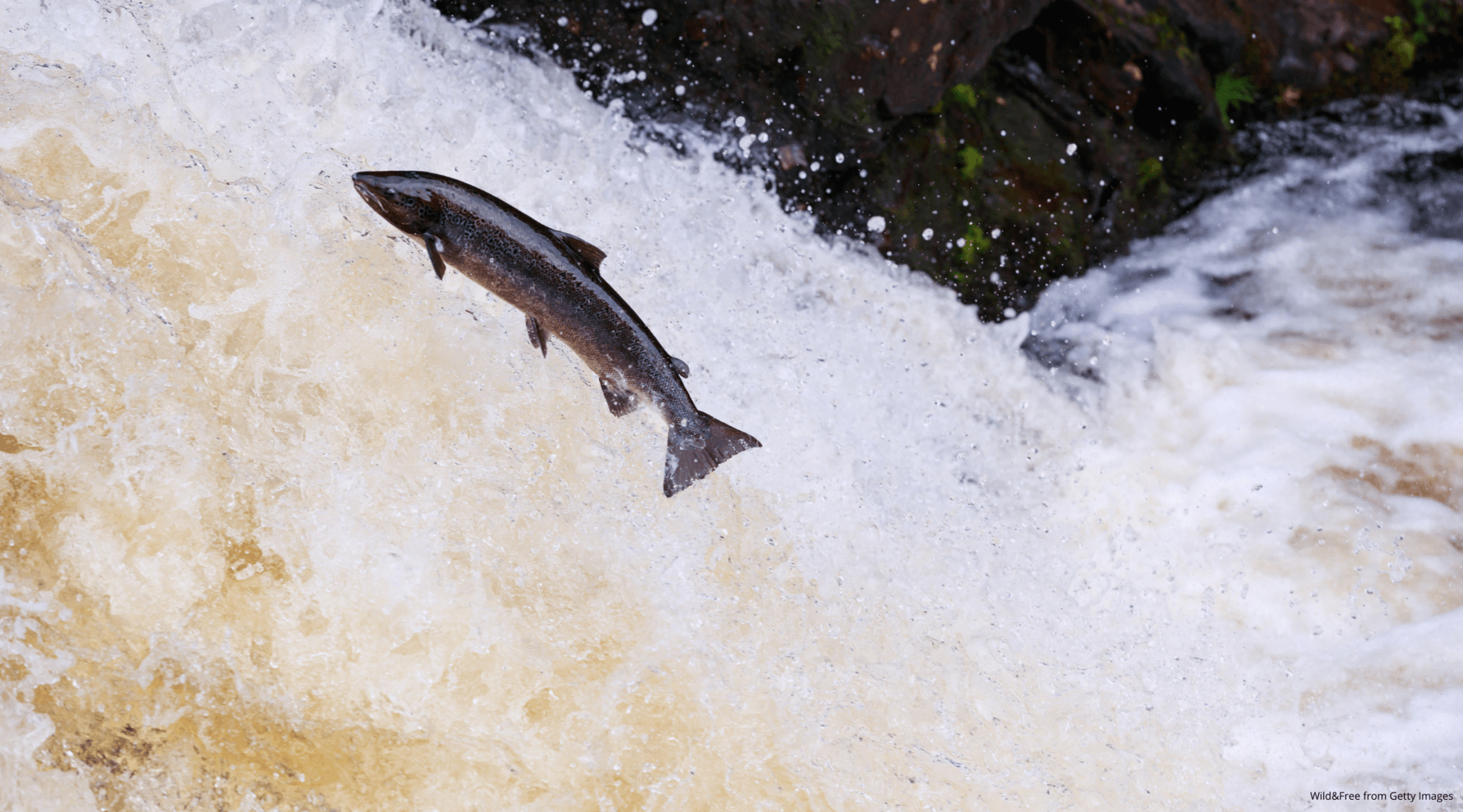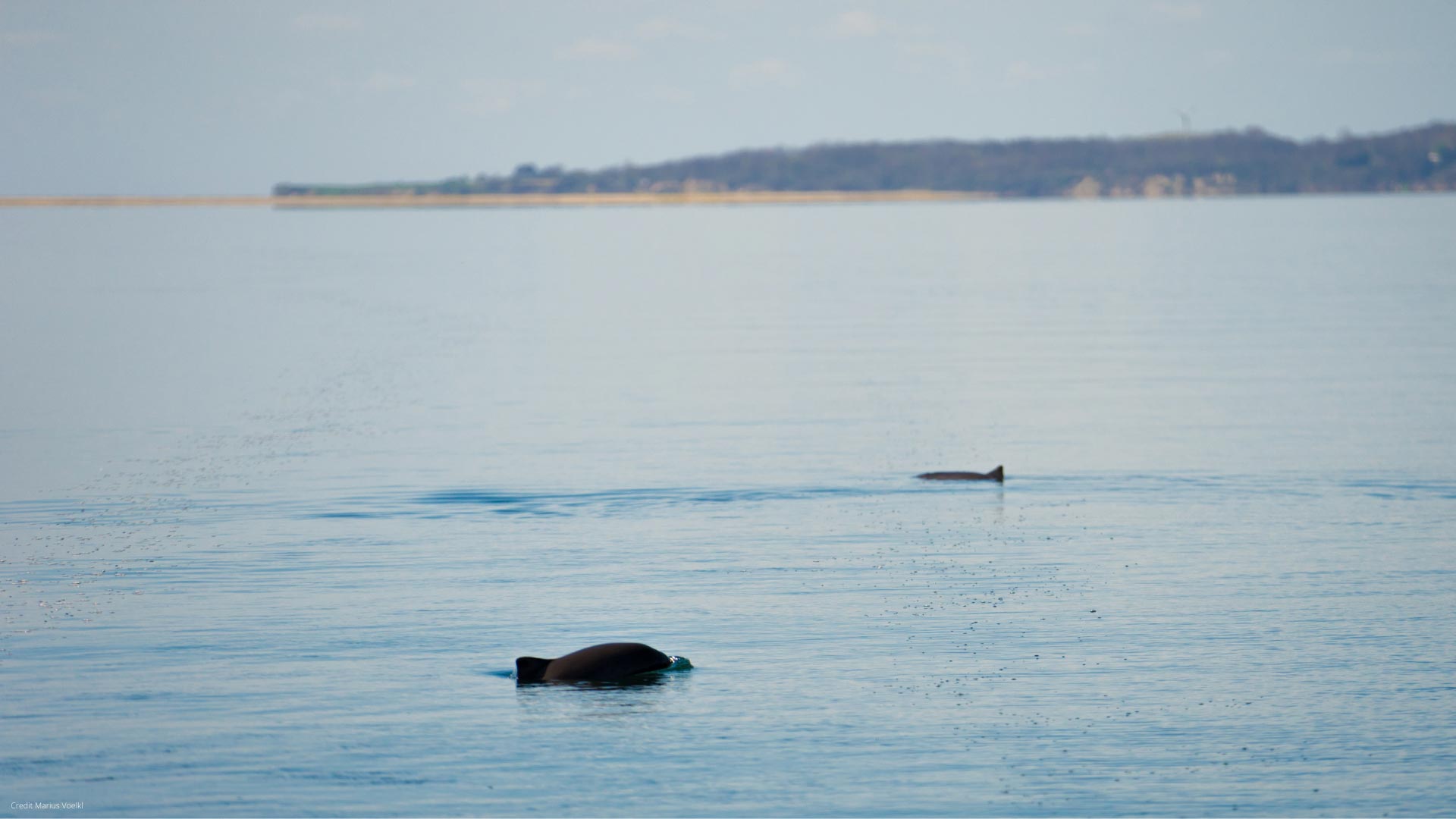Biodiversity
The main goal of the Working Area Biodiversity is the protection of endangered species and habitats as well as
the implementation of ecosystem-based thinking and management in the Baltic Sea Region.
The problem
Many species threatened in the Baltic Sea region. The threats can be from specific anthropogenic uses such as fisheries, pollution or underwater noise, but also due to climate change as a consequence of the industrialisation of our world. Examples of threatened species are the Harbour porpoise
or various fish species, such as the Baltic salmon, listed in the EU Habitats Directive. We only have a few hundred porpoises left in the Baltic Sea and inaction is risking complete loss. The main threats to the Baltic harbour porpoise are considered to be bycatch in gillnet fisheries, environmental contaminants and underwater noise, as well as ecosystem changes which may influence prey accessibility. A Salmon Action Plan has been adopted but 2/3 of the wild river populations are still threatened due to pollution and damming of rivers for hydroelectric power.
Also cod, sea trout and eel
populations are of key importance. The Baltic cod is very important as a top predator and feed on sprat and herring. Over the past decades, the cod stock has been severely overfished, resulting in larger amounts of other pelagic fish which has changed the entire ecosystem from cod dominated to sprat and herring dominated.
The eel stock has declined by 97% and the Baltic Sea region is of particular importance since most eels here grow into large females, crucial to the success of spawn.
The goal
The aim is the implementation of ecosystem-based thinking and management in the Baltic Sea Region.
A specific focus has to be on key species of the ecosystem that are severely endangered in order to help rebuild a healthy Baltic Sea ecosystem. Equally some pressures and spatial measures need their own focus, such as marine protected areas or the impact of fisheries on the ecosystem.
How is CCB working with this issue?
MATERIALS & MEDIA
WHAT CAN WE DO?
What can countries do together?
- Commit themselves to the general objective of conserving the biodiversity of the region as a whole;
- Fully implement the Biodiversity Actions in the updated HELCOM Baltic Sea Action Plan and develop national and joint plans for protection of Baltic marine species in the EU Habitat Directive;
- Agree not to weaken the present rules on protection of Baltic seals;
- Agree on bycatch mitigation measures to be implemented in the entire population range of the Baltic harbour porpoise;
- Promote the attainment of the relevant international agreements concerning the import of alien species, like the Ballast Water Management Convention;
- Share recent knowledge about the development of alien species and their ecological effects;
- Apply the precautionary principle and an ecosystem-based management approach for Baltic Sea Fisheries and follow the scientific advice from the International Council for the Exploration of the Sea (ICES) when setting stock quotas;
- The fishing and fleet size must match the available resources;
- Only the most environmentally friendly and responsible fishermen should be granted access to the fish resource and be allowed to fish.
What can each country do?
- Make serious efforts to protect the national marine and coastal areas identified in the regional system of the Baltic Sea Protection Areas (BSPA) via concrete management plans;
- Do not allow any general hunting of seals in the Baltic Sea;
- Take action to ensure harbour porpoise bycatch is minimised, preferably to zero. This can be done through use of pingers in static net fisheries or through further closures of fisheries in important harbour porpoise areas;
- Reduce the transfer of alien species by the control and management of ship’s biofouling and of ballast water and sediments in its ports and waters with respect to the Ballast Water Management Convention;
- Monitoring of aquatic alien species in ports and coastal waters (including coastal lagoons);
- Follow the scientific advice from ICES for fishing of cod, sprat, herring, salmon, sea trout and flat fishes;
- Develop action plans to safeguard and improve the natural reproduction of Baltic salmon and sea trout in all rivers and rivers with potential for natural reproduction;
- Only the most environmentally friendly and responsible fishermen should be granted access to the fish resource and be allowed to fish;
- Protect the eel and increase the escapement from the Baltic Sea by stopping all fishing during migrations season and securing free migration routes.
What can you do?
- Talk to your local politicians about the importance of protecting biodiversity in all sectors of society;
- Contact your Ministry of Environment and urge for full implementation of developed management plans for BSAP and other marine conservation areas;
- As a consumer, request restaurants and fishmongers to provide eco-labelled fish and not sell wild Baltic salmon or eel;
- Push your own government and contribute to a better public awareness of the threat against the Baltic fish stocks;
- Gather interested people and initiate or participate in local projects to restore natural reproduction of salmon and sea trout in the rivers near you, thereby contributing to the protection of a unique regional stock.
Get in contact with the
CCB Working Area Leader on Biodiversity
If you have questions or want to collaborate
send an e-mail to:
secretariat [at] ccb.se
We continue to act, do you want to know more?
Click the button below to discover our other Working Areas.

